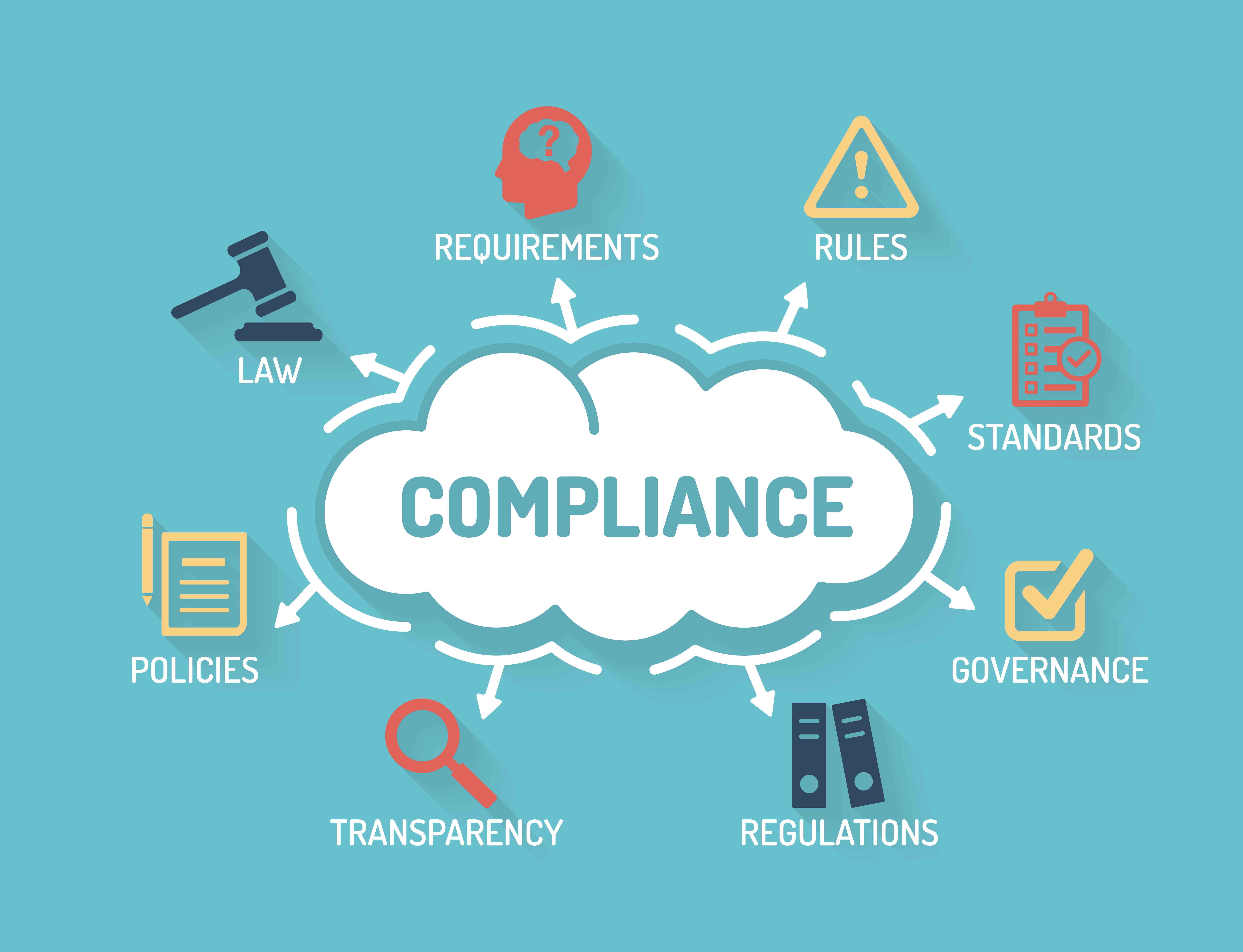CDNs (Content Delivery Networks) Facilitate Global Compliance and Data Privacy

CDNs play a crucial role in supporting businesses in adhering to global compliance requirements and protecting user data privacy.

Global Compliance

- Data Localization: CDNs offer data centers in various regions worldwide, allowing businesses to store data locally and comply with local regulations that require data to reside within specific geographic boundaries.
- Cross-Border Data Transfers: CDNs facilitate compliant cross-border data transfers by adhering to data protection agreements such as the EU-US Privacy Shield and GDPR. They ensure data is transferred securely across borders, meeting the legal requirements.
- Lawful Interception: CDNs cooperate with law enforcement authorities to provide lawful interception and access to data when legally mandated, while safeguarding user privacy.
Data Privacy
- Data Encryption: CDNs encrypt data in transit and at rest using industry-standard protocols, such as SSL/TLS and AES-256, protecting it from unauthorized access.
- Access Control: CDNs implement strict access controls, limiting access to data only to authorized personnel and systems.
- Data Masking and Anonymization: CDNs offer features to mask or anonymize user data, removing personally identifiable information (PII), while preserving insights for business purposes.
- GDPR Compliance: CDNs assist businesses in complying with GDPR (General Data Protection Regulation) by providing tools for data subject requests, data deletion, and breach notifications.
How CDNs Achieve Compliance and Privacy
- Physical Infrastructure: CDNs maintain a global network of data centers with robust security measures, including physical access control, surveillance, and disaster recovery plans.
- Technical Measures: CDNs implement a range of technical safeguards, such as intrusion detection systems, firewalls, and malware protection, to prevent unauthorized access and data breaches.
- Operational Procedures: CDNs establish clear policies and procedures for data handling, data access, and incident response, ensuring compliance with regulations and industry best practices.
- Certifications and Third-Party Audits: CDNs undergo independent audits and certifications to demonstrate adherence to industry standards and compliance frameworks, such as ISO 27001 (Information Security Management) and SOC 2 (Service Organization Control).
Benefits of Utilizing CDNs for Compliance and Privacy
- Reduced Risk of Penalties: Adhering to global compliance and data privacy regulations minimizes the risk of fines, lawsuits, and reputational damage.
- Enhanced Data Security: CDNs provide comprehensive security measures to protect sensitive data from unauthorized access, breaches, and data loss.
- Improved Customer Trust: By demonstrating commitment to data privacy, businesses can build trust with customers and strengthen their brand reputation.
- Operational Efficiency: CDNs simplify compliance with complex regulations, allowing businesses to focus on core operations.
In summary, CDNs are essential tools for businesses to achieve global compliance and protect user data privacy. They provide a secure and compliant infrastructure, enabling businesses to operate lawfully and ethically worldwide.## How Cdns Facilitate Global Compliance And Data Privacy
Executive Summary
Cdns are essential for ensuring global compliance and data privacy. They provide a secure and efficient way to manage and transfer data across borders, while adhering to the complex and evolving regulatory landscape. By leveraging Cdns, organizations can streamline their compliance efforts, protect sensitive data, and gain a competitive advantage in the global marketplace.
Introduction
In today’s interconnected world, businesses operate across multiple jurisdictions, each with its own unique data privacy and compliance regulations. Managing compliance manually can be a daunting task, increasing the risk of data breaches, hefty fines, and reputational damage. Cdns offer a comprehensive solution to these challenges, enabling organizations to automate compliance processes, secure data transfers, and maintain trust with customers.
FAQs
Q: What are the key benefits of using Cdns for compliance and data privacy?
A: Cdns provide numerous benefits, including automated compliance, secure data transfers, reduced risks of data breaches, improved efficiency, and enhanced trust.
Q: How do Cdns help organizations meet global compliance requirements?
A: Cdns facilitate global compliance by enabling organizations to easily adhere to the specific data privacy and security regulations of each jurisdiction in which they operate.
Q: Are Cdns secure enough to handle sensitive data?
A: Cdns employ robust security measures, including encryption, authentication, and access controls, to ensure the confidentiality, integrity, and availability of data.
Top 5 Subtopics
1. Automated Compliance
Cdns automate compliance processes, reducing the need for manual intervention and human error.
- Real-time compliance monitoring: Cdns continuously monitor data transfers and identify potential compliance issues.
- Automated reporting and alerting: They generate reports and alerts to inform organizations of compliance status and any deviations.
- Centralized management: Cdns provide a single platform to manage compliance across multiple jurisdictions, simplifying the process.
2. Secure Data Transfers
Cdns ensure secure data transfers by encrypting data in transit and at rest.
- End-to-end encryption: Data is encrypted from the source to the destination, protecting it from unauthorized access.
- Secure routing: Cdns optimize data routing to ensure data is transferred through secure channels and geographical locations.
- Data loss prevention (DLP): Cdns can detect and prevent the transfer of sensitive data outside authorized channels or jurisdictions.
3. Compliance with Data Privacy Regulations
Cdns play a crucial role in helping organizations comply with global data privacy regulations, such as GDPR, CCPA, and HIPAA.
- Data residency and sovereignty: Cdns enable organizations to store and process data in specific geographical locations as required by certain regulations.
- Data subject rights: Cdns facilitate the exercise of data subject rights, such as the right to access, rectify, and erase personal data.
- Data breach notification: Cdns provide timely notifications of data breaches to affected individuals and relevant authorities.
4. Risk Mitigation and Data Security
Cdns significantly reduce the risk of data breaches and other security incidents by implementing comprehensive security measures.
- Robust encryption and authentication: Cdns use strong encryption algorithms and authentication mechanisms to protect data from unauthorized access.
- Threat intelligence: They leverage threat intelligence to identify and mitigate emerging cyber threats.
- Continuous security monitoring: Cdns perform continuous monitoring to detect and respond to security incidents in real time.
5. Performance and Scalability
Cdns are highly performant and scalable, enabling organizations to handle large volumes of data without compromising compliance or security.
- Global network: Cdns maintain a global network of servers, ensuring optimal performance and data transfer speeds.
- Auto-scaling: Cdns automatically scale to meet changing demand, ensuring consistent performance and compliance.
- Load balancing: They distribute data traffic across multiple servers, improving reliability and performance.
Conclusion
Cdns are indispensable tools for organizations navigating the complex and ever-evolving global compliance and data privacy landscape. By embracing Cdns, organizations can streamline compliance processes, protect sensitive data, reduce risks, and enhance trust. Investing in a robust Cdn solution is not only a strategic move to avoid penalties and reputational damage but also a competitive advantage in the digital age.
Keyword Tags
- Compliance Management
- Data Privacy
- Cloud-based Security
- Global Compliance
- Data Protection
